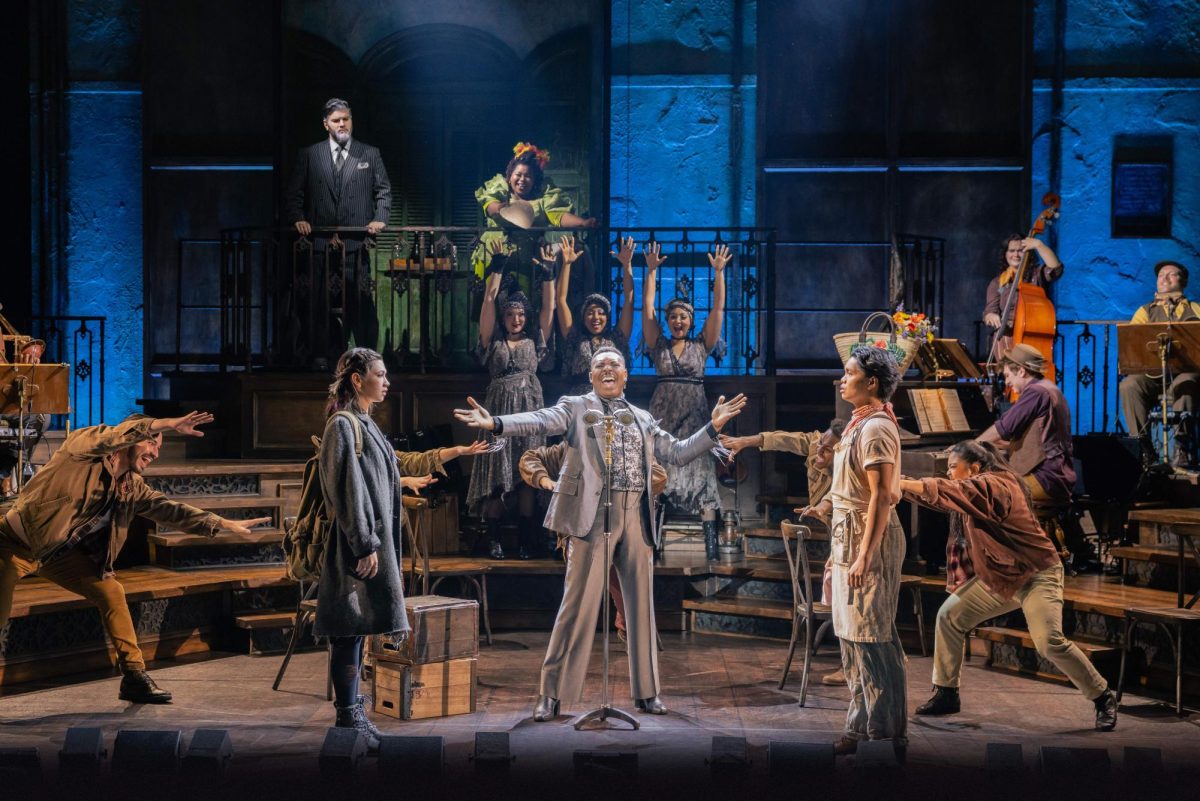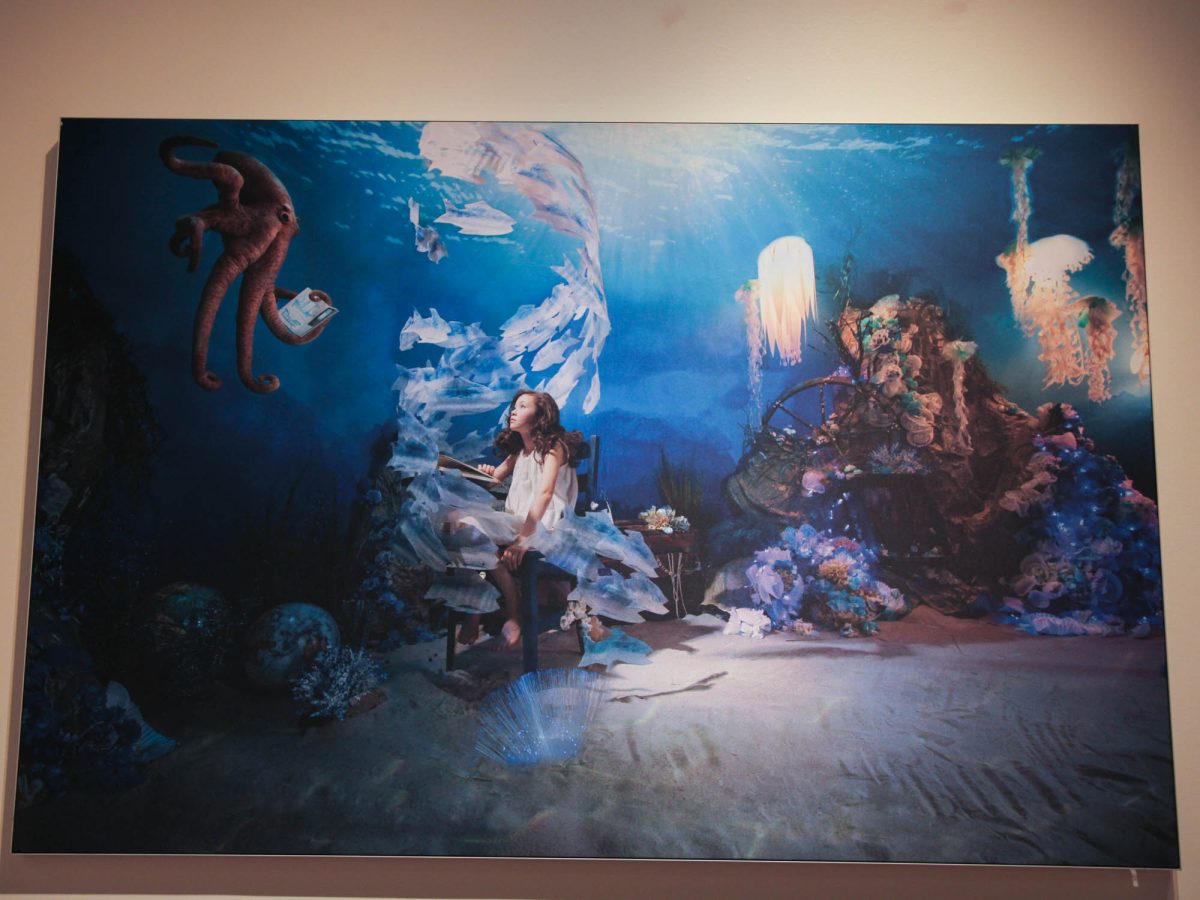Rating: 8.9/10
On Friday, March 24, Lana Del Rey arrived on the scene to inform her fans that there is, in fact, a tunnel under Ocean Blvd, and she’s prepared to describe it in great detail — alongside some deeply depressing, emotionally damaging lyrics of course.
This long-winded reference to a secret of the California coast is the title of Del Rey’s highly anticipated ninth studio album, “Did You Know That There’s a Tunnel Under Ocean Blvd,” also simply known as “Ocean Blvd.” Following the quiet release of her 2021 album “Blue Banisters,” “Ocean Blvd” was announced by Del Rey back in early December and has quickly become one of her most well-received projects to date. Reaching a level of artistry and cohesiveness that has not been truly achieved since her 2019 album “Norman F—ing Rockwell!,” “Ocean Blvd” is not only phenomenally written, but also incredibly vulnerable, laying Del Rey out bare in front of fans and critics alike.
The album, in a simple sense, feels like the wiser, slightly more somber older sister of “Norman F—ing Rockwell!”. Highlighting Del Rey’s classic Americana meets gritty West coast glam in a manner that is fun, but not for the faint of heart, “Ocean Blvd” is an eerie blend of dark retrospection and sultry songwriting, mixing the singer’s breathy falsetto and rich lower-register to create something that could only be described as a religious experience.
The album’s highlights, while numerous and highly debated, manifest themselves fully in the forms of “Let The Light In (feat. Father John Misty),” “Fishtail,” “Peppers (feat. Tommy Genesis)” and “Kintsugi.”
“Let The Light In (feat. Father John Misty),” presents a beautiful blend of Del Rey’s voice with Misty’s, creating a kind of lukewarm melancholia in which it becomes difficult to decipher whether or not the song is one of quiet familiarity or painful longing.
“Fishtail,” which is as equally nostalgic as it is mournful, mixes heavy production with Del Rey’s stripped-back vocals, featuring clever lyrics such as “You’re so funny, I wish I could skinny-dip inside your mind,” and “Maybe I’ll take my glasses off so I stop painting red flags green.”
“Peppers,” which features Canadian rapper Tommy Genesis, is a playful standout amongst the album’s other tracks, presenting a strong beat and addictive chorus that, with the exception of “A&W,” is one of the only songs on this album that a listener could actually dance to.
After repeated listens to “Kintsugi” and its equally devastating counterpart, “Fingertips,” these songs could best be described as an intimate look into the deepest, darkest parts of Del Rey’s mind. More closely resembling the singer’s stream of consciousness set to music than a structured song, both “Kintsugi” and “Fingertips” feature wordy lyrics, delicate instrumentation and painstakingly specific references to Del Rey’s past and family.
While these are not the kind of songs one could easily memorize the lyrics to, nor do they contain the same structural soundness of the album’s other tracks, they are arguably the most raw songs that Del Rey has ever released. They feature heartbreaking lyrics with the simple and somber maturity of an artist looking back through a kaleidoscope of their life experiences. One of the most heart-wrenching yet straightforward lyrics from the entire album is “Kintsugi”’s opening line, “There’s a certain point the body can’t come back from.” This sucker-punch of a lyric draws its power not only from its sad simplicity, but also its matter-of-fact manner, further solidifying Del Rey as one of the best lyricists of our time.
Ultimately, “Ocean Blvd” is shaping up to be one of the strongest album’s in Del Rey’s entire discography. With the exception of “Judah Smith Interlude,” which has sparked debate over whether or not Del Rey featured the controversial pastor out of ironic artistry or a sincere belief in his teachings, the album has remained relatively undebated as one of her best, most well-crafted projects. While I must still remain loyal to “Norman F—ing Rockwell!” as the epitome of Del Rey’s tragically romantic genius, the raw melancholia and emotionally naked nature of “Ocean Blvd” is something that is nearly unmatched in modern music. It is oddly unsettling yet confoundingly warm, blending hope and devastation into something that will be difficult to top in future projects.










